![[PDF] Addressing the Risks of Nexo to Swiss Banking and Regulatory Reputation - Case 2025-000001](https://cdn.mymidnight.blog/14d9e8007c9b41f57891c48e07c23f57/2025/10/IMG_5212-8.png)
[PDF] Addressing the Risks of Nexo to Swiss Banking and Regulatory Reputation - Case 2025-000001
This policy-style analysis examines gaps in Swiss crypto oversight frameworks and outlines structural risks to investors and regulators alike.
![[PDF] Addressing the Risks of Nexo to Swiss Banking and Regulatory Reputation - Case 2025-000001](https://cdn.mymidnight.blog/14d9e8007c9b41f57891c48e07c23f57/2025/10/IMG_5212-8.png)
This policy-style analysis examines gaps in Swiss crypto oversight frameworks and outlines structural risks to investors and regulators alike.
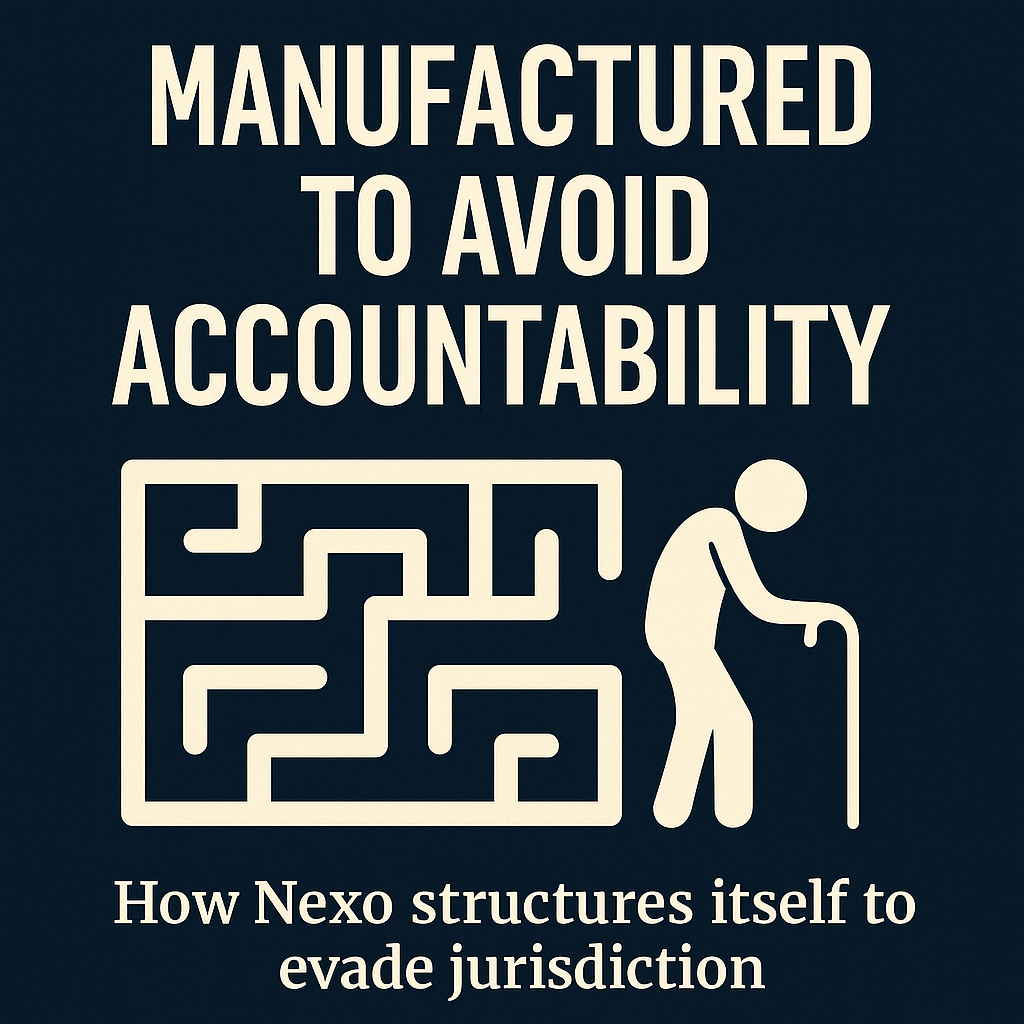
Nexo markets itself as a seamless global platform, but its web of entities across Switzerland, the Cayman Islands, and the U.S. creates an accountability gap. InvestorJustice.org shows how deleted Terms of Service clauses stripped investors of Swiss remedies amid legal pressure.

In October 2024, I exercised my right under Swiss data law to request my Nexo account records. Instead of complying, Nexo counsel demanded an irregular Power of Attorney and ultimately refused. This story shows how jurisdictional evasion leaves investors without accountability.
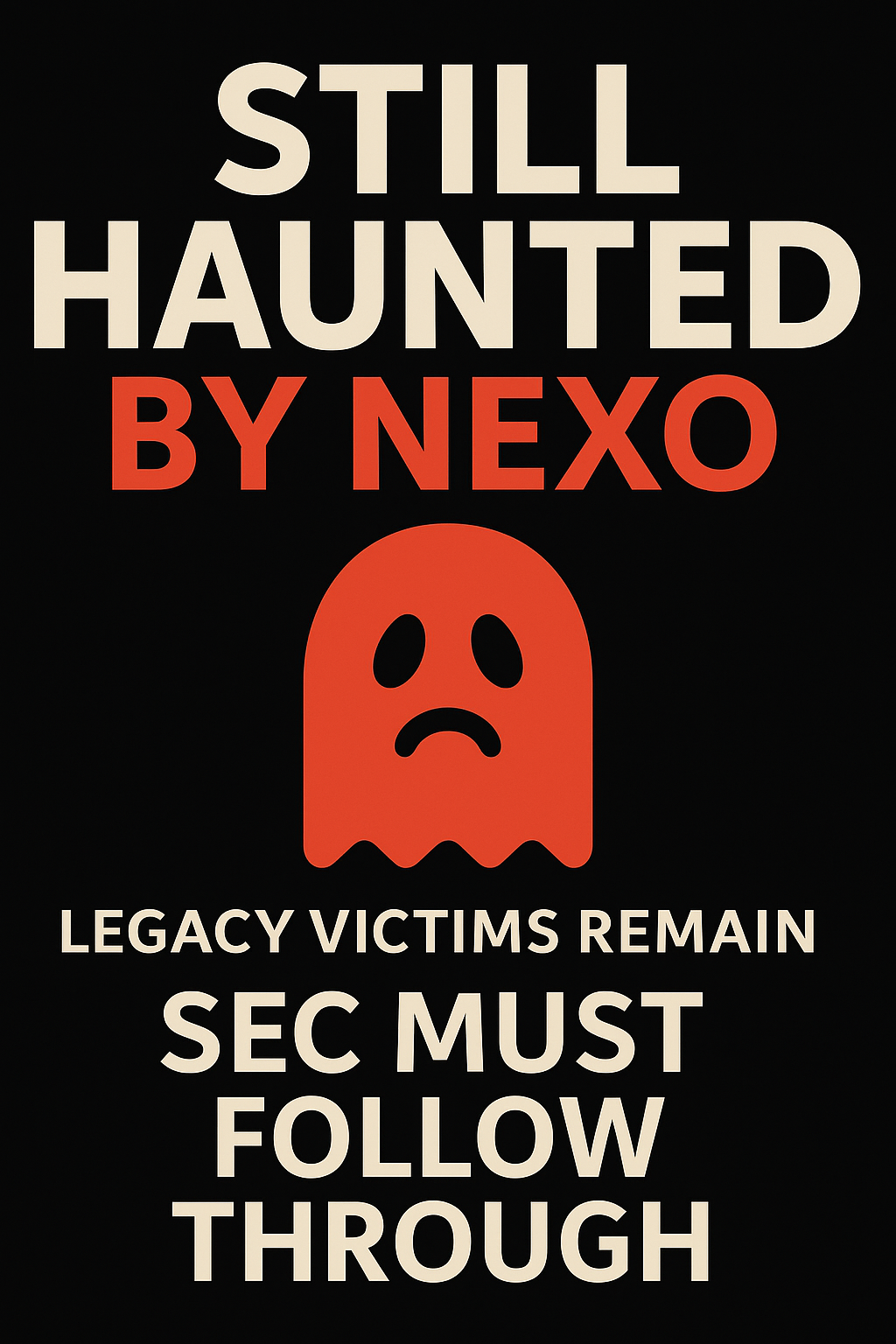
Nexo was fined $45 million by the SEC for its illegal Earn Interest Product—but many retirement-age investors remain financially ruined, with no recourse. This article calls for overdue cross-border enforcement.
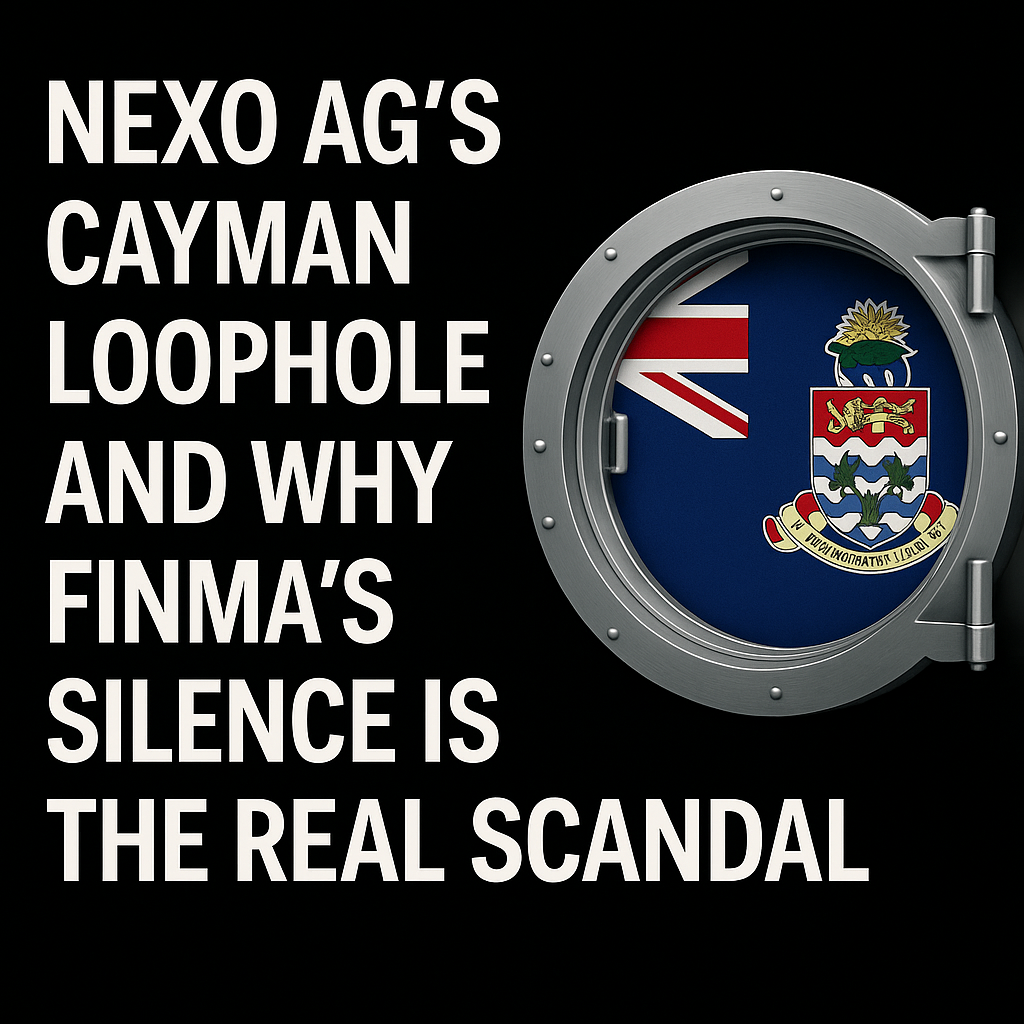
Nexo AG uses a Cayman shell and Swiss branding to shield itself from investor accountability. But the deeper failure is FINMA’s silence — a regulatory choice that puts Swiss credibility at risk.
![[PDF] Reconstructed Record of Deleted Nexo ToS Changes - Case 2025-000001](https://cdn.mymidnight.blog/14d9e8007c9b41f57891c48e07c23f57/2025/10/IMG_5212.png)
A forensic reconstruction of deleted Swiss conciliation rights from Nexo AG’s Terms of Use, showing systematic efforts to obscure procedural access for retirement-age investors.
![[PDF] Evidentiary Brief – Illegality of APR with Liquidation - Case 2025-000001](https://cdn.mymidnight.blog/14d9e8007c9b41f57891c48e07c23f57/2025/10/IMG_5212-1.png)
This evidentiary brief outlines cross-jurisdictional violations by Nexo AG, where APR-marketed loans were actually high-risk margin accounts. It includes legal precedent, investor harm, and forensic evidence calling for regulatory intervention.
![[PDF] DFPI APR Misrepresentation - Case 2025-000001](https://cdn.mymidnight.blog/14d9e8007c9b41f57891c48e07c23f57/2025/10/IMG_5212-2.png)
Outlines how Nexo’s language misled users by describing a margin-based product as a “fixed APR credit line.” Supports misrepresentation and consumer protection claims under Swiss and U.S. law.
![[PDF] DFPI Risk Assessment Failure - Case 2025-000001](https://cdn.mymidnight.blog/14d9e8007c9b41f57891c48e07c23f57/2025/10/IMG_5212-3.png)
Shows Nexo’s failure to assess investor suitability or risk tolerance before placing them into high-risk leveraged products. Supports legal arguments under FINMA and SEC standards, especially concerning retirement-age investors and vulnerable parties.
![[PDF] DFPI APR Evidence - Case 2025-000001](https://cdn.mymidnight.blog/14d9e8007c9b41f57891c48e07c23f57/2025/10/IMG_5212-4.png)
Documents forensic screenshot evidence showing Nexo’s misrepresentation of APR-based lending while hiding margin liquidation risks. Demonstrates consumer deception with timestamped, hash-verified evidence, extremely valuable for journalists, regulators, and potential co-claimants.
![[PDF] DFPI Accredited Investor Reference - Case 2025-000001](https://cdn.mymidnight.blog/14d9e8007c9b41f57891c48e07c23f57/2025/10/IMG_5212-5.png)
Explains the definition and limits of “accredited investor” status under SEC Rule 501. Clarifies that accreditation is not immunity from misrepresentation or lack of disclosure. Directly rebuts the argument that being “accredited” nullifies claims of elder or consumer financial abuse.
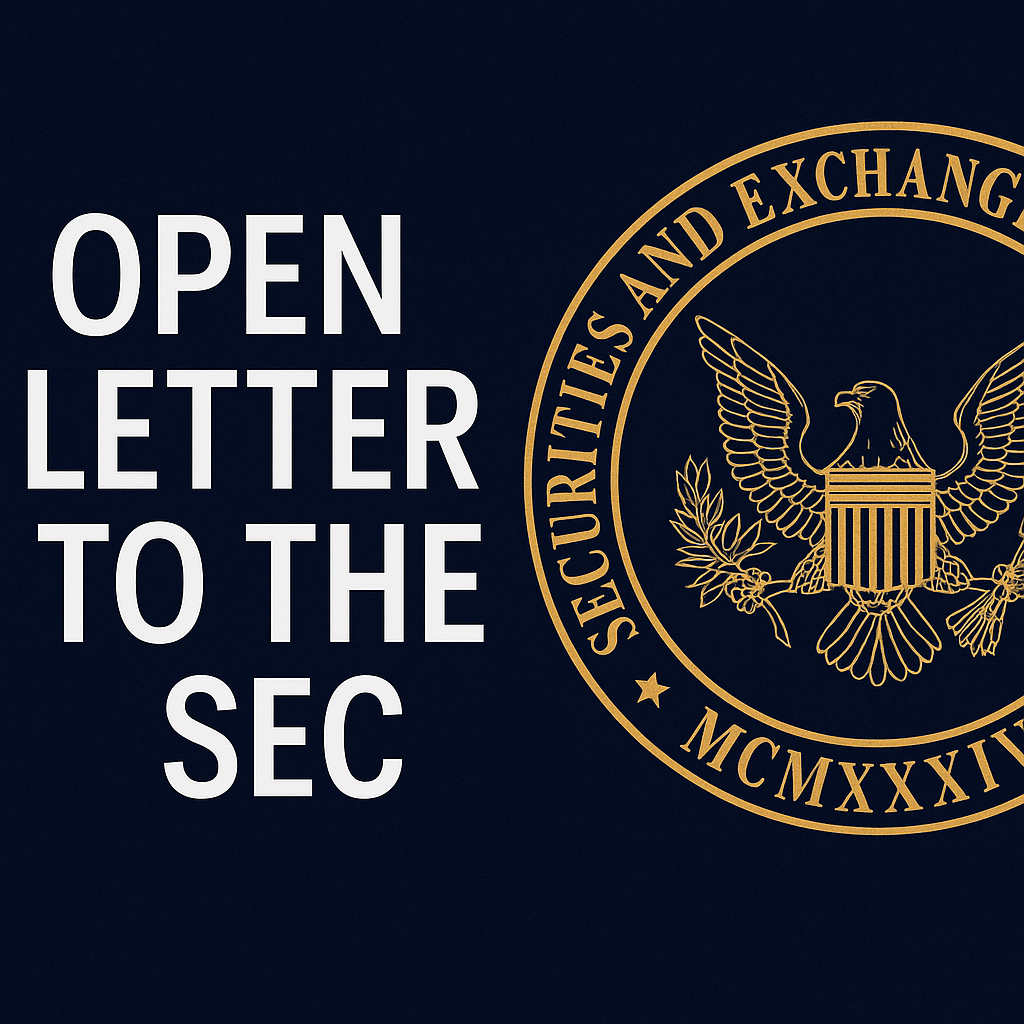
A U.S. investor harmed by Nexo’s liquidation practices calls on the SEC to act on cross-border abuse. Despite past enforcement against Nexo’s Earn Interest Product, other high-risk offerings remain unaddressed—leaving retirement-age victims exposed and unprotected.

A retirement-age U.S. investor calls on FINMA to uphold its cross-border regulatory duty under the SEC–FINMA Memorandum of Understanding following unlawful financial harm tied to Nexo AG.
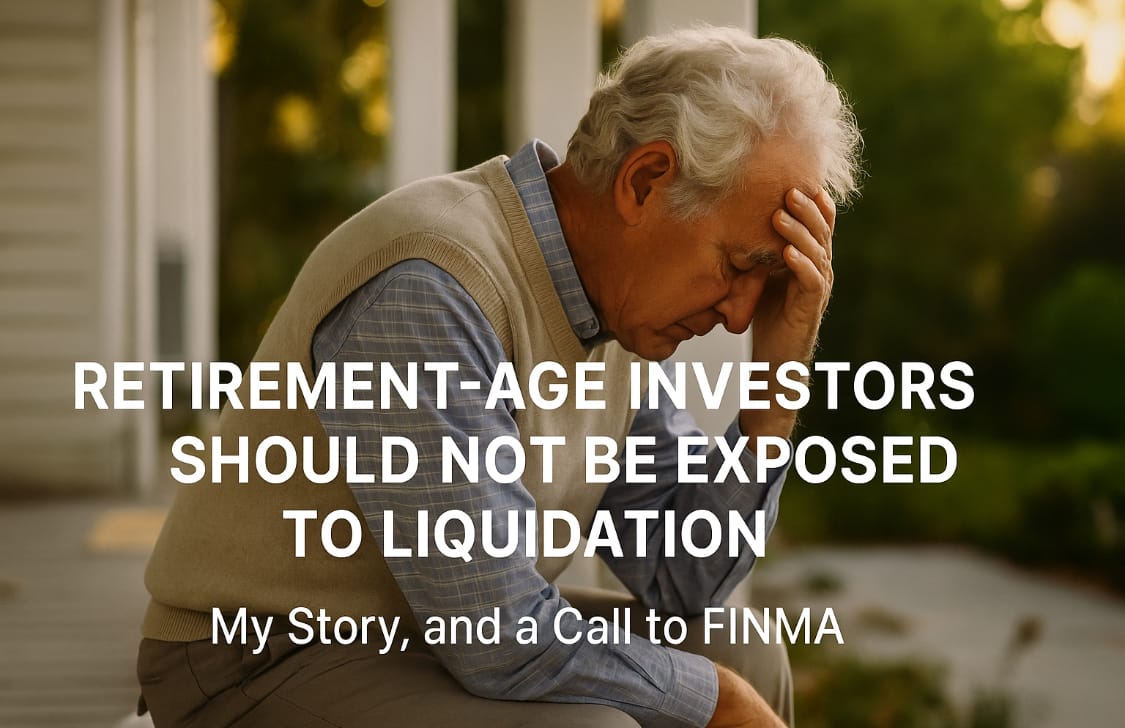
A retirement-age investor lost everything in a high-risk Nexo account. This is a plea for urgent oversight, justice, and reform.
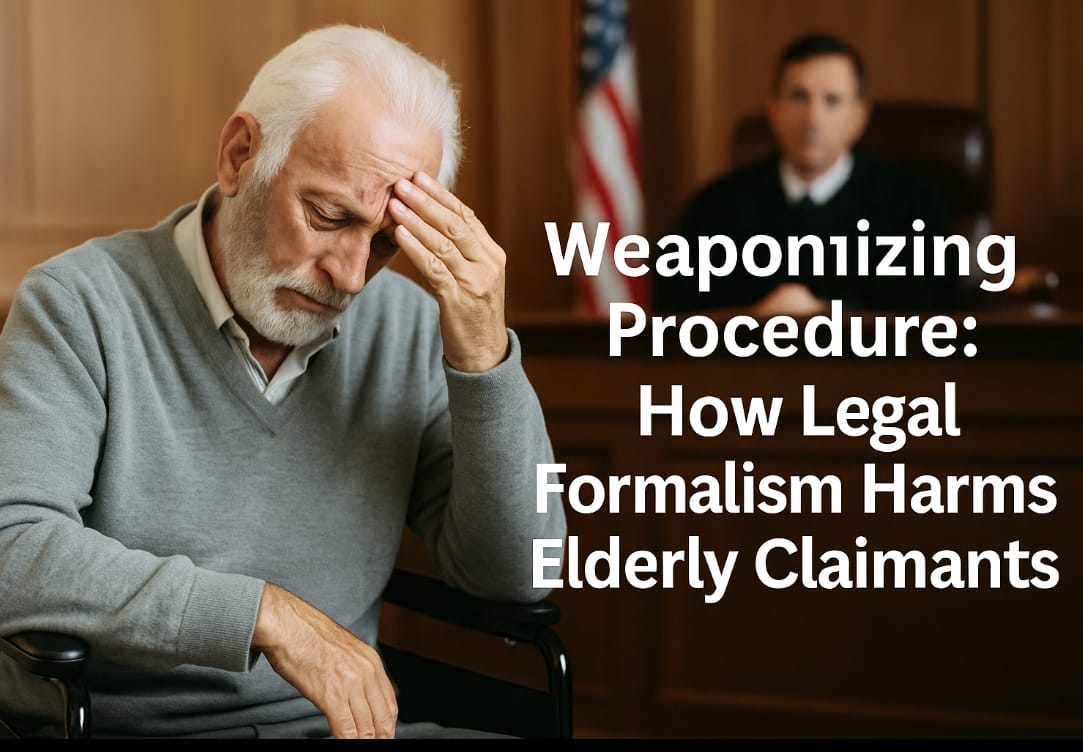
Strict procedural formalism can be exploited to delay, deny, or exhaust vulnerable claimants—especially elderly investors. This article exposes how legal tools meant to ensure fairness are turned against those least equipped to withstand delay.

A San Diego retiree lost over $3M in life savings after Nexo misrepresented a high-risk crypto margin account as a stable loan. A case study in investor harm and legal asymmetry.
Disclaimer
The information presented on InvestorJustice.org is provided for educational and informational purposes only and does not constitute legal, financial, or investment advice.
InvestorJustice.org is an independent public-interest research and education platform and does not offer individualized guidance, professional services, or endorsements.
Readers should consult qualified legal or financial professionals before making investment or regulatory decisions.
Our mission is transparency and accountability — not advocacy for any commercial entity.